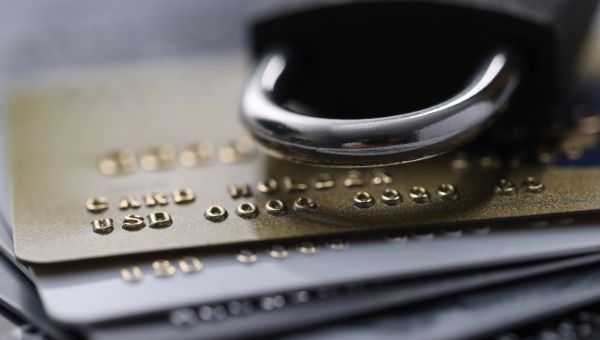11 simple ways to spend less and save more
Learn tricks from the savviest savers to buy the things you really want—and still build your nest egg.
Updated on August 2, 2023

If you really want to change your financial outlook, you have to make it part of your lifestyle (just the way effective eating plans work, too). Some of the following tips are gathered from people who save 35 to 50 percent of their total income and thus buy financial freedom much earlier in their lives than most people—in other words, SuperSavers. Here are eleven ways to spend and save smarter.
Excerpted from the book Age-Proof: Living Longer Without Running Out of Money or Breaking a Hip by Jean Chatzky and Michael F. Roizen, MD. Copyright © 2017 by Jean Chatzky and Michael F. Roizen, MD. Reprinted by permission.
Jean Chatzky is an award-winning financial journalist and CEO of HerMoney.com. Michael F. Roizen, MD, is Chief Wellness Officer for Cleveland Clinic and co-creator of the RealAge Test.

Spend your values
One thing SuperSavers seem to have tapped into is aligning their spending with the things they really care about. They’re not living a monastic sort of life without any frills or fun. They’ve just thought about what they do and don’t care about. In our research about SuperSavers, one said he realized he had been spending at least $10,000 a year going to fancy restaurants and going out for drinks all the time with his friends. That didn’t matter much to him, so he cut back. On the other hand, he did love to travel, so he didn’t cut back there at all.
One tip to help you: Keep a spending journal. Write down how much you spend and on what. Then go back a week later and again a month later and write down how you feel about having spent that money. You’ll start to see a pattern in what’s worth it to you and what’s not.

Be goal oriented
SuperSavers set big goals—goals other people might think of as unattainable. But having those goals puts them on the track to success. You can help yourself by committing to your goals on paper. A 2014 study from Dominican University showed that people were 42 percent more likely to achieve their goals if they wrote them down. It’s also important that goals are specific and measurable—involving, for example, an amount you are trying to put away—and that you give yourself a deadline. (Note: A fascinating study of Harvard Business School students showed that only three percent of them had written goals. Flash forward 10 years, and that three percent with written goals was earning 10 times more than the other 97 percent combined.)

Automate as much as possible
That means employing automatic deductions for 401(k) payments or other savings. Take the time to look at your balances every month or so. When you see how much success you’re having, it’s like seeing the first five pounds come off. It makes you want to keep going. You can also automate how your money is invested; that will keep you from tinkering with everything, especially when the market is down and you’re tempted to sell. (Instead, during bear markets do what Warren Buffett does: focus on the total number of shares you have and concentrate on building this number. At lower prices you can accumulate shares faster.)

Give yourself some tough love
We’re not the money police. But you should be. Take a look at what you spend your money on and ask yourself if it’s worth it. Take coffee. Half of the American workforce buys coffee at work, and two-thirds buy lunch rather than bringing it in. That’s a huge amount of money. The average American spends more than $3,000 a year on coffee and lunch. These things—along with ATM fees, lottery tickets, soda, cigarettes, credit card interest and bottled water—are budget busters. If that daily trip to Dunkin’ is meaningful to you, that’s fine. But you should be aware of how much money you’re spending on that. Because money is a limited resource, you have to make choices. And you’re going to be happiest if you’re making them consciously rather than without thinking about them at all. It can also help to play some games with yourself. For instance, instead of just thinking of that coffee as a four-buck outlay, remind yourself that 10 of them could buy you that shirt you’ve had your eye on, or that a month’s worth could buy you a ticket to the concert you’ve been dying to see. Reframe expenditure to represent a goal that’s meaningful to you.

Set up roadblocks
Sometimes the key to not shopping is simply making it harder for yourself to shop, by either putting something in your way or removing a convenience. (When you think about it, this makes sense. One big reason we leave money in our 401(k)s is that there’s a barrier—a penalty—to getting it out before retirement.) Some roadblocks you might want to try: don’t save credit card info on websites (so you have to enter it in every time you make a purchase) and unsubscribe from e-mail lists that are especially tempting, or simply make it a personal policy not to shop from the computer at work or after eight at night.

Microanalyze your food choices
One in three Americans waste $2,600 a year at the grocery store; that’s $50 a week. Where food is concerned, a little planning goes a long way. With groceries, take inventory of what’s in your cupboards and fridge before you go to the store. Your aim should be to eat it (whatever it is) before the expiration date. And when you go to the store, do it after you eat (a hungry shopper makes for a bad-choice shopper), chew gum to avoid tempting smells as you shop, and wear headphones (supermarkets sometimes slow down the music to get you to spend more time there).

Slow down the non-grocery shopping
If you find yourself shopping just because you have to have the latest technology or fashion, or you shop because of a mood—you’re bored, tired, stressed, angry—it helps to have a set of rules. Here are four that can help.

Think "one in/one out"
Before you can add another gadget to your already exploding lineup, or another pair of pants to your already exploding closet, you have to get rid of one. Preferably, sell it and use the money to defray the next purchase.

Give yourself a discretionary gimme
How much money can you spend—per week or per month, you get to set the rules—without it hurting your budget or affecting your savings? Allow yourself that. If you want to buy something that costs more, save up for a couple of weeks to do it.

Make a no-cost plan to boost your mood
If you’re reacting to sadness or anger, try to do something else that’ll boost your mood. Go for a run. Take a walk in nature. Invite a favorite friend over for a glass of wine. It's a fact: money stress can hurt your health and even take years off your life.

Keep a 30-day list
If there’s something you want to buy on impulse, put it on your list. If you still really want it when the 30 days have expired, find a way to make it work. Most of the time, the item will be long forgotten. But if it’s not and you’d still like to make the purchase, do research online to determine what’s actually a good price for the items on your list and what’s just a sales tactic. Doing your homework will prevent you from getting ripped off—and help you to stay focused on being a smart, careful shopper.
More On


video

article

slideshow


video


video
